Pidgin English is unique to Hawaii and varies island to island, and even by region. Pidgin not only is based on how you speak but how you act and the shared cultural knowledge.
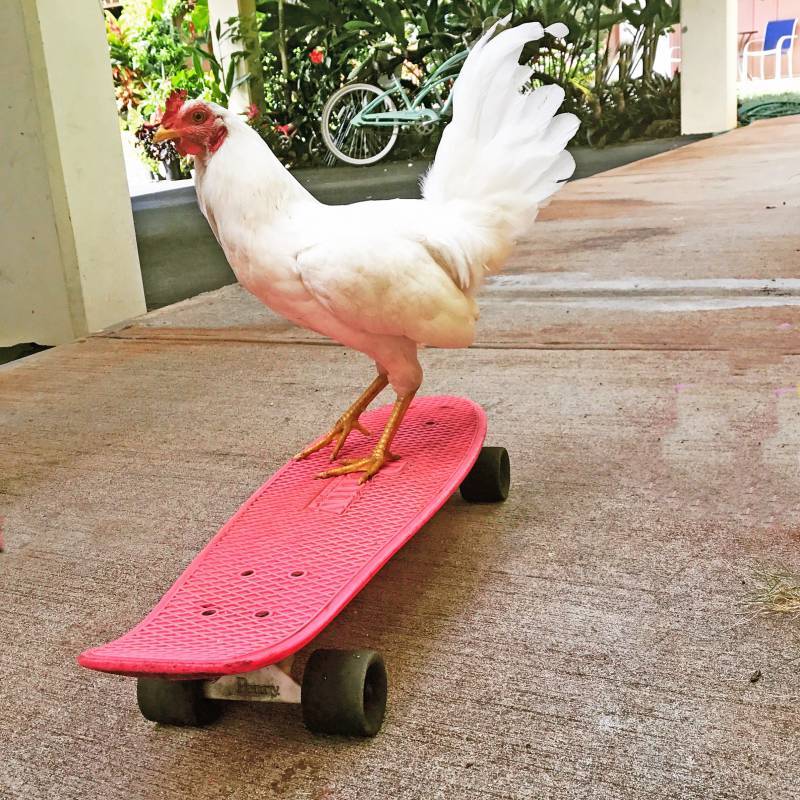
Most of the time, pidgin slang is used informally or among friends and was actually almost banned from classrooms in the ‘80s. Now there is a certain prestige in speaking pidgin or being able to sing along when the ukulele comes out (“tell Faith Yanagi I love her/Tell Faith Yanagi no go cry/and no go out with Mits Funai”). There is also more pride using the beautiful Hawaiian names for places and pronouncing the words correctly. For instance, “Shit Falls” is now Oneloa Bay, “Airport Beach” is Kahekili, say “Hali’imailē” instead of “Hailey Miley”…
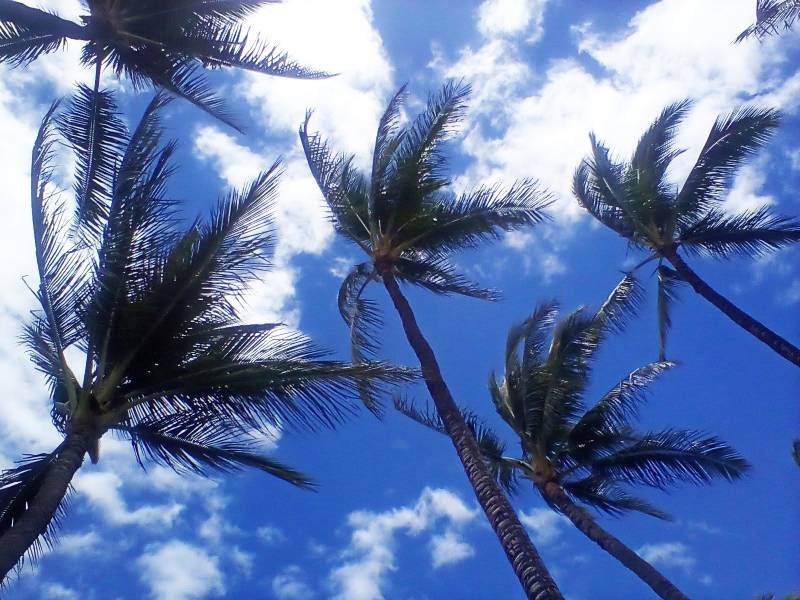
Imua! (Let’s Go!)
Following my last blog on how to speak mo’ bettah Pidgin, here are a few more insights:
1. Keiki – A child or children. Plural is also keiki. “The keiki are welcome at the party.”
2. Mauka or makai – Mountain side or ocean side. This is very important when receiving directions in Hawaii since no one uses street names. “We live on the lower road by the farmers market, mauka side.” No one here says: “Take route 30 to 1503 Lower Honoapi’ilani road…”
3. Dollah-tree-eighty – If you can’t remember the cost of something, usually not much, you could say it cost a dollah-tree-eighty.
4. Pakalolo is marijuana; literally the crazy weed (paka = weed, lolo = crazy). This probably doesn’t need explanation, but seriously one of my colleagues didn’t know what this meant the other day when someone was serving Pakalolo cookies at a party – I wouldn’t want you to eat a one by mistake because no one told you what that herb was…
5. Manini – Skimpy, small. Manini means small or stingy; “he probably left a dollah-tree-eighty for a tip.” The word comes from those small striped reef fish (convict tang) that are delicious but don’t have much meat on them.
6. Brah/braddah man – I like to use this as an exclamation when I see an old friend: “Braddah man!” They usually answer, “Sistah girl!” or “How you stay?” …you can call everyone brah, even the ladies. “Howzit brah?”
7. Auntie or Uncle – Respectful way of referring to your elders. Like “Brah” – especially useful if you cannot remember the first name of the coaches at swim practice: “Thank you, Uncle, for helping the keiki today.”
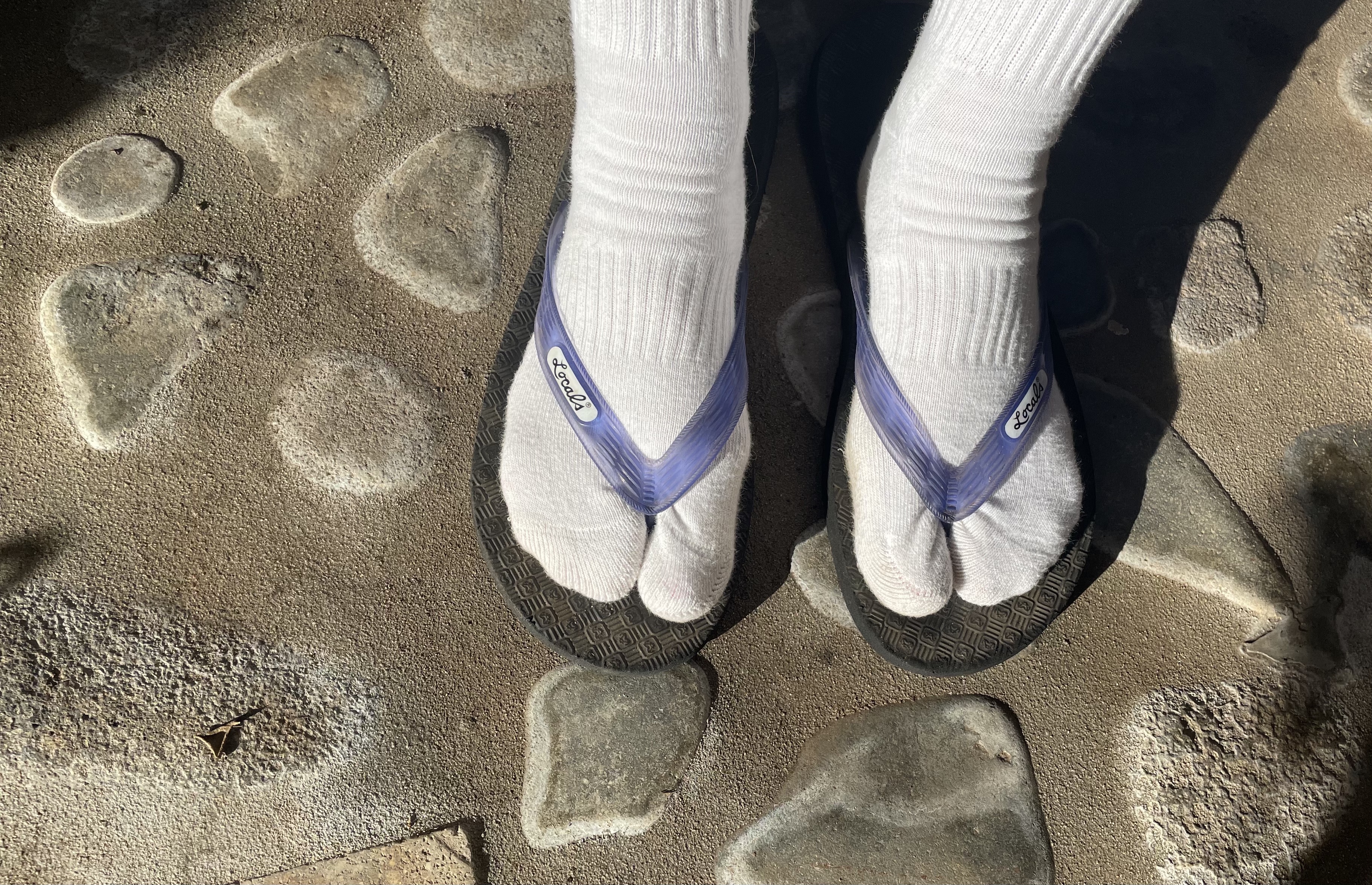
8. Sandals are called rubbah slippah and you always leave them at the front door, even when someone says it’s ok to wear your shoes inside. If it gets really cold in the winter in Hawaii, put some socks on wit’ da rubbah slippah.
9. Something delicious is broke da mout’ or ono-lishious!
10. Everyone has heard of pupus! Snacks or hors d’œuvres. Makes the keiki laugh when you say, “We’re having a pupu party tonight.”
11. A kama’aina means someone from the land (aina), a local or someone who lives in Hawaii, but now it seems to mean someone with a Hawaii driver’s license who qualifies for the discount.
12. Hammajang – This means messed up…Often used to refer to someone who is drunk or wasted…“He got all hammajag last night.”
13. Okole – We always use it as a nice way to refer to your behind or bum, but apparently it means the actual…well, da kine…puka.
One last one: Coo-Deesh. Koodeesh? Please put in comments if you know what this means? I used to hear it a lot as an exclamation when I was younger but no one seems to know what it really means. A Portuguese swear word?
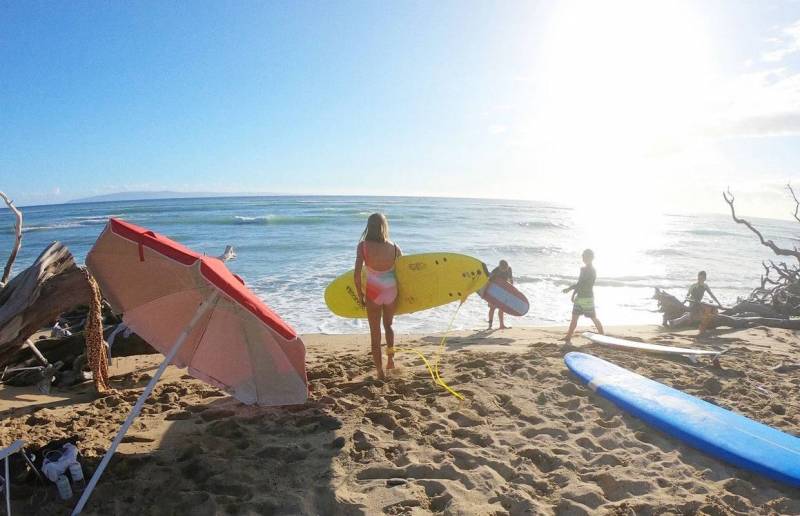
No Ack! (Stop Showing Off!)
Talk Story: Stop, listen, ask questions, and chat. In Hawaii, as a visitor or haole, it is important to be aware and considerate in your encounters. This can be going to the post office, hanging in your condo complex, or joining a group of paddlers. Don’t come in a hurry, loud with your “mainland” agenda. Don’t ring the bell for help! If you are on vacation, remember most locals work two jobs and aren’t automatically as cheery as the folks in the luaus working for tips. Nothing personal, just try to understand our point of view. Allow an extra five minutes to talk story for most transactions, but don’t force it if the person is busy.
Hawaii Time: People do run late or miss calls for bizarre reasons. We might go out for a surf or go watch the sunset and miss your text messages. A Eucalyptus tree might fall over a phone line and the alarm doesn’t go off. A fire might close the road and Fed Ex can’t make it over. We might stop to talk story with the neighbor and have a beer. Getting impatient doesn’t move things along. A missed appointment or the construction worker who didn’t show up for work…they are running on Hawaii Time. Keep in mind we are on an island in the middle of the Pacific so things take a while to get here. It’s not always endearing. Be flexible.
My particular strain of pidgin is from Maui in the ‘70s and ’80. It’s a mix from local friends at school and haole (white) surfer hippy parents with a bit of Potagee (Portugese) thrown in since I was raised in paniolo (cowboy) country. For me, Pidgin is also acknowledging everyone (not just the high maka maka fancy folks) with a head tilt up, not a nod down, and saying howzit or stopping to talk story…
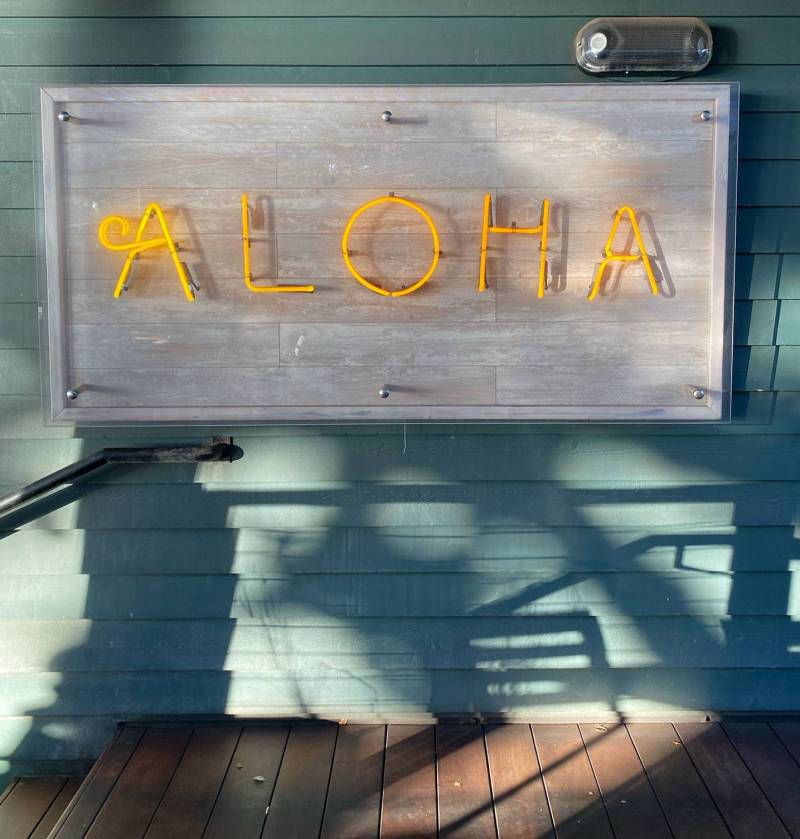
There is a myth that locals don’t like the tourists or haoles on Molokai or wherever. It reminds me of people who go to Paris and say the French are all jerks. That’s because they enter a café speaking English loudly, ordering a diet coke with extra ice cubes in a to-go cup…
Each person speaks pidgin a bit differently, but even if you don’t speak pidgin, you can enjoy your Hawaii day and adopt the Hawaiian Vibe: have a good sense of humor, be empathetic, patient, and humble, and don’t rush through transactions. Ok, a few well appointed pidgin words can diffuse a tense situation…especially if you’ve lived here since da hanabata (snotty-nose) days!
Search here for island-wide real estate… I’m here on Maui and ready to help!

Mike F,
November 4, 2024
Love this article Anna! I’m a kotonk from California and my late wife grew up in the McCulley area on O’ahu. She would drift back into her pidgin whenever she talked to her friends back home or her folks. But she absolutely HATED it when I tried to talk pidgin haha!! Shootz~
Anna Severson
November 4, 2024
> Mike da Katonk – hilarious! Tanks for reading, have a good week!